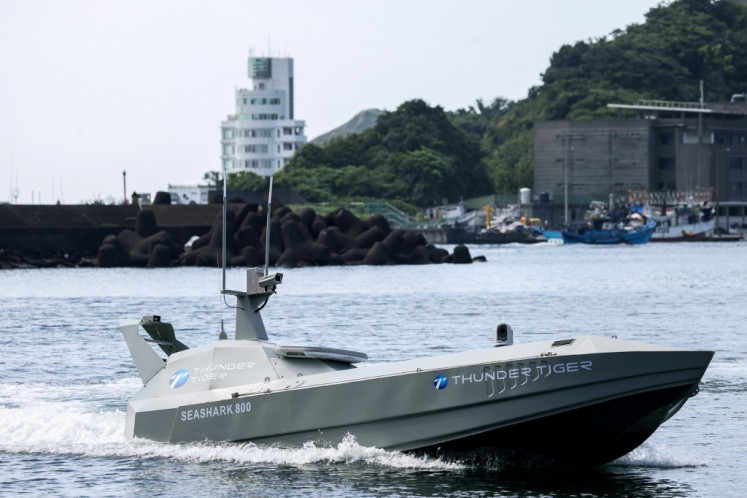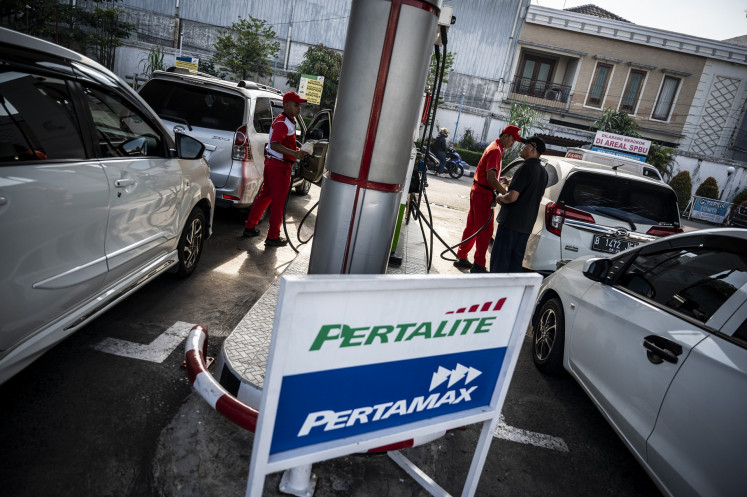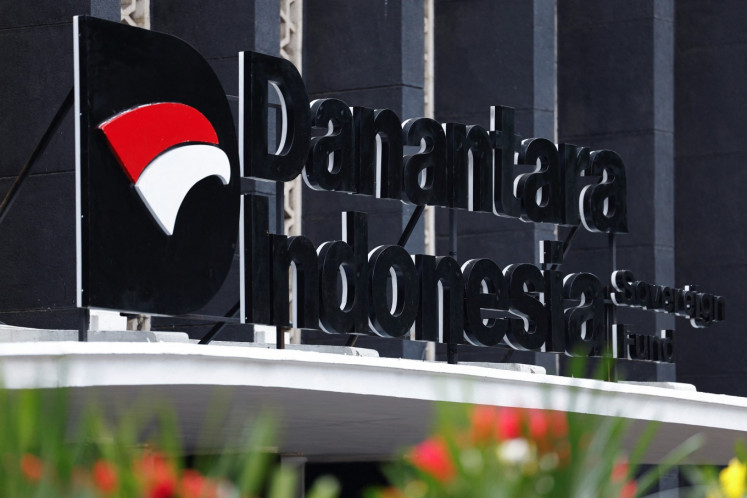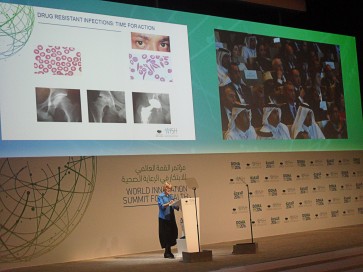Popular Reads
Top Results
Can't find what you're looking for?
View all search resultsPopular Reads
Top Results
Can't find what you're looking for?
View all search resultsThe danger of antimicrobial resistance and how to tackle it
All the breakthroughs in scientific research will be utterly futile unless accompanied by a shift in public behavior concerning antibiotics.
Change text size
Gift Premium Articles
to Anyone
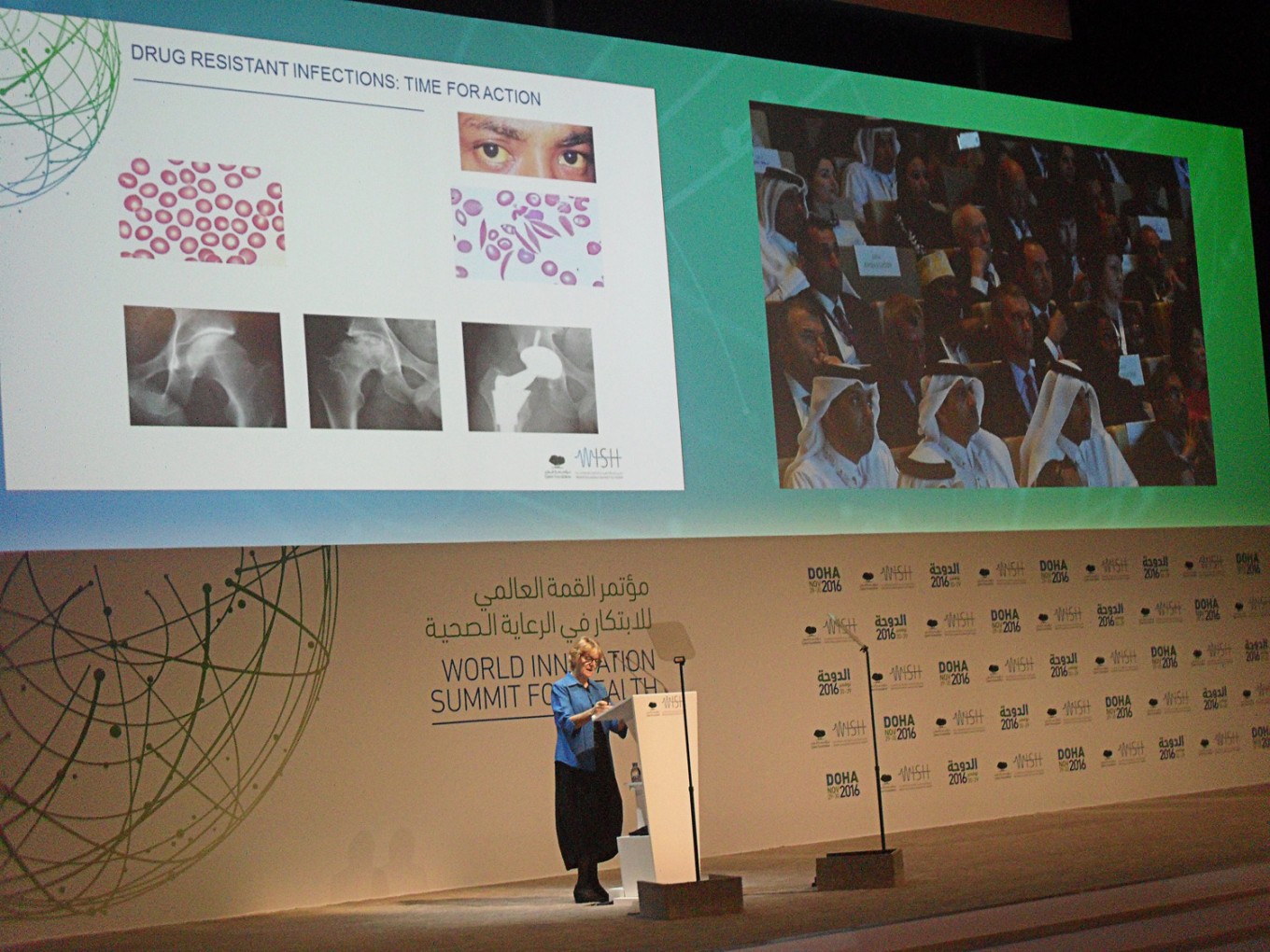 Health talks -- Dame Sally Davies, chief medical officer for England and a member of the World Health Organization’s executive board, highlights antimicrobial resistance as one of critical health concerns worldwide on Tuesday in her keynote speech at the 2016 World Innovation Summit for Health (WISH) in Doha. (JP/Elly Burhaini Faizal)
Health talks -- Dame Sally Davies, chief medical officer for England and a member of the World Health Organization’s executive board, highlights antimicrobial resistance as one of critical health concerns worldwide on Tuesday in her keynote speech at the 2016 World Innovation Summit for Health (WISH) in Doha. (JP/Elly Burhaini Faizal)
O
n Sept. 26, amid the regrettable humanitarian disasters unfolding in the Middle East, Sudan and Ukraine, the United Nations hosted the second high-level meeting on antimicrobial resistance (AMR). The issue may not grab as many headlines as the wars, pandemic or artificial intelligence, but its cost to human lives is real and possibly even more profound.
AMR arises when disease-causing (pathogenic) bacteria no longer respond to antibiotic treatment. One of the main causes is the overuse of antibiotics in health care and even agriculture.
Frequently, patients are given antibiotics, despite not being infected by bacteria (antibiotics do not work against viruses or parasites). This is not entirely the fault of doctors; it is typically quicker to prescribe antibiotics than diagnose the cause of the infection. Sometimes, it is the patients who expect to be given antibiotics, just to be on the “safe side”.
However, the safety of this is very relative: such over-use of antibiotics gives the bacteria an opportunity to learn how to fight back against antibiotics. As a result, the next time they encounter the same antibiotic, they know how to deal with it. Drug-resistant bacterial infections in our bodies, inevitably, persist and may even cause death.
The AMR problem is already happening at a large scale. A report published in September in a high-impact medical journal Lancet mentions that between 1990 and 2021 there were more than one million deaths per year worldwide caused by drug-resistant infections. This number may be underestimating the true count, as the study only focused on 22 pathogenic bacteria.
It is likely that more infections went unreported. If AMR goes unchecked, the count could increase to two million per year by the 2050s. That exceeds the predicted mortality rate from cancer worldwide.
The numbers look grim. However, it is not all doom and gloom. We can start by appreciating how miraculous antibiotic medication is. Since the 1920s, when Alexander Fleming discovered the first antibiotic, penicillin, in St. Mary’s Hospital in London, it is estimated that this “wonder” drug has saved more than tens or hundreds of millions of lives.





